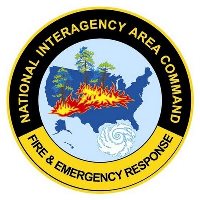The lineup for the Area Command Teams (ACT) has been announced and the number of Teams has been reduced from four to three.
Jennifer Jones, spokesperson for the U.S. Forest Service in Boise, told us the reason for the change:
Based on analysis of Area Command Team use over the past 15 years, it was determined that 3 Teams were adequate.
An ACT may be used to oversee the management of large incidents or those to which multiple Incident Management Teams have been assigned. They can take some of the workload off the local administrative unit when they have multiple incidents going at the same time. Your typical Forest or Park is not usually staffed to supervise two or more Incident Management Teams fighting fire in their area. An ACT can provide decision support to Multi-Agency Coordination Groups for allocating scarce resources and help mitigate the span of control for the local Agency Administrator. They also ensure that incidents are properly managed, coordinate team transitions, and evaluate Incident Management Teams.
National ACTs are managed by the National Multi-Agency Coordinating Group (NMAC) and are comprised of the following:
- Area Commander (ACDR);
- Assistant Area Commander, Planning (AAPC);
- Assistant Area Commander, Logistics (AALC);
- Area Command Aviation Coordinator (ACAC); and
- Two trainees.
They usually have an additional 2 to 15 specialists, including Fire Information, Situation Unit Leader, Resource Unit Leader, and sometimes others such as Safety, and Long Term Planning, or assistants in Planning, Logistics, or Aviation.
This year the ACT lineup looks like this, according to the ACT website:
Dugger Hughes ACDR
Paul Summerfelt ACPC
Rich Rusk ACLC
Yolanda Saldana ACAC
Boo Walker ACDR
Jim Jaminet ACPC
Butch Hayes ACLC
Mike Dudley ACAC
Bill Van Bruggen ACDR
Joe Ribar ACPC
Martin Maricle ACLC
Rich Webster ACAC
The Area Commander not on the list this year after serving on ACTs for nine years (2006 – 2014) is Jim Loach.
Area Commanders serve for a three-year term, after which they can apply for any of the other three Assistant Area Commander positions if they wish to continue to serve on the team. They may be selected as an Area Commander for up to an additional 3 years, if there are no other qualified applicants.
Type 1 Incident Commanders are managed in a similar manner for the most part. Generally they serve for three years and then must re-apply.
We have been told that the National Wildfire Coordination Group has been pushing to “re-form” the Type 1 teams each year, with a yearly application and re-selection process. It seems to us that would be a detriment to the TEAM concept.


Yes, it appears that Operations and Finance was left out of that C & G crossover bridge.
more proposed changes for IMT’s as of October 2015 310-1
This is interesting
If you are a Type 1 or 2 Command and General Staff, you can “bridge” over to another Command an Gen Staff, get the taskbook and become qualified, without having to gain qualifications in any of the lower level jobs in that Section
So you, as a LSC2, could get a task book for a PSC2 without serving as a Resources Unit Leader, or a Situations Unit Leader; or get a task book for FSC2, without ever being qualified as a Time Unit Leader, or a Cost Unit Leader.
Likewise, a PIO2 could get a taskbook for OSC2, without ever being a Division Supervisor.
Am I missing something here?
Bridge document:
http://www.nwcg.gov/general/memos/m-14-021b.pdf
From my quick glance, the bridge involving a PIO is one way, from an OSC, PSC to a PIO, and not the other way.
“seems to us that would be a detriment to the TEAM concept.”
Agreed, Bill, just from the few experiences I’ve had working with T1 and T2 teams. Curious to see what other T1 members think of the concept.
Now and then you hear objections to political candidates using the word “re-elect” for campaigns, as if the incumbent gains some unfair advantage in a race. To me as a voter, “re-elect” tells me that this person won at least one election in the past, and more important, has some OTJ experience — which I consider an advantage in some cases. For a T1 team (not to mention ACTs) I think that on-the-job experience is a real advantage. Why recycle them every year? Or make existing ICs re-apply?
Also, this NWCG “reform” — just for the ICs or for all T1 team members?